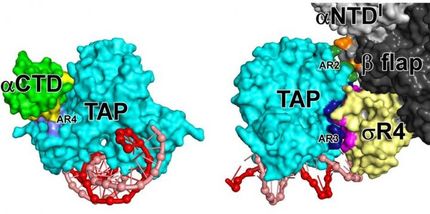Bacteria breakthrough is heaven scent
Advertisement
bacteria are well-known to be the cause of some of the most repugnant smells on earth, but now scientists have revealed this lowest of life forms actually has a sense of smell of its own. A team of marine microbiologists at Newcastle University have discovered for the first time that bacteria have a molecular "nose" that is able to detect airborne, smell-producing chemicals such as ammonia.
Published in Biotechnology Journal, their study shows how bacteria are capable of 'olfaction' – sensing volatile chemicals in the air such as ammonia produced by rival bacteria present in the environment. Led by Dr Reindert Nijland, the research also shows that bacteria respond to this smell by producing a biofilm – or 'slime' – the individual bacteria joining together to colonise an area in a bid to push out any potential competitor.
Dr Nijland, who carried out the work at Newcastle University's Dove Marine Laboratory, said the findings would help to further our understanding of how biofilms are formed and how we might be able to manipulate them to our advantage.
"This is the first evidence of a bacterial 'nose' capable of detecting potential competitors," he said. "Slime is important in medical and industrial settings and the fact that the cells formed slime on exposure to ammonia has important implications for understanding how biofilms are formed and how we might be able to use this to our advantage. The next step will be to identify the nose or sensor that actually does the smelling."
This latest discovery shows that bacteria are capable of at least four of the five senses; a responsiveness to light – sight – contact-dependent gene expression – touch – and a response to chemicals and toxins in their environment either through direct contact – taste – or through the air – smell.
Project supervisor Professor Grant Burgess, director of the Dove Marine Laboratory, said that understanding the triggers that prompt this sort of response had huge potential.


















































